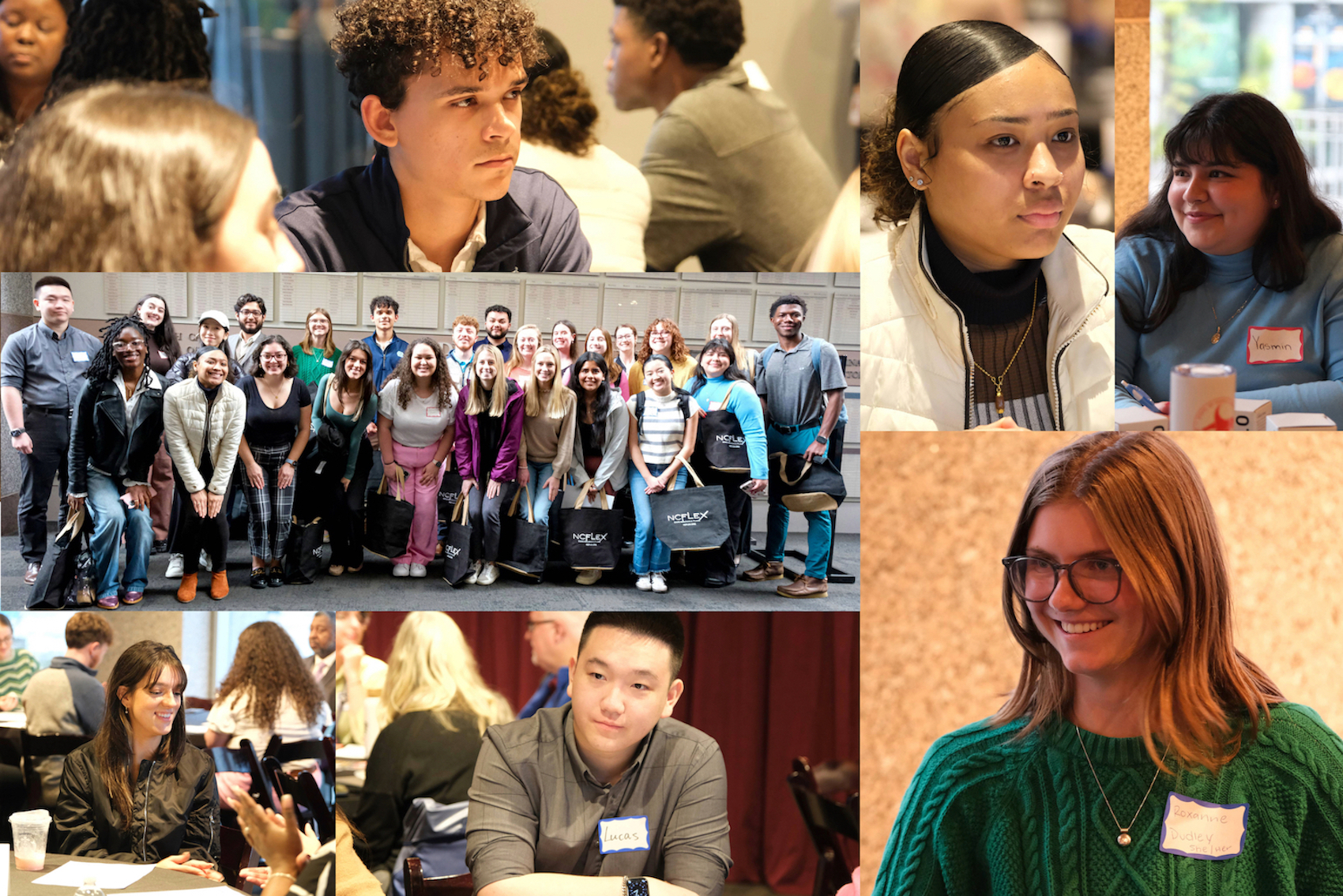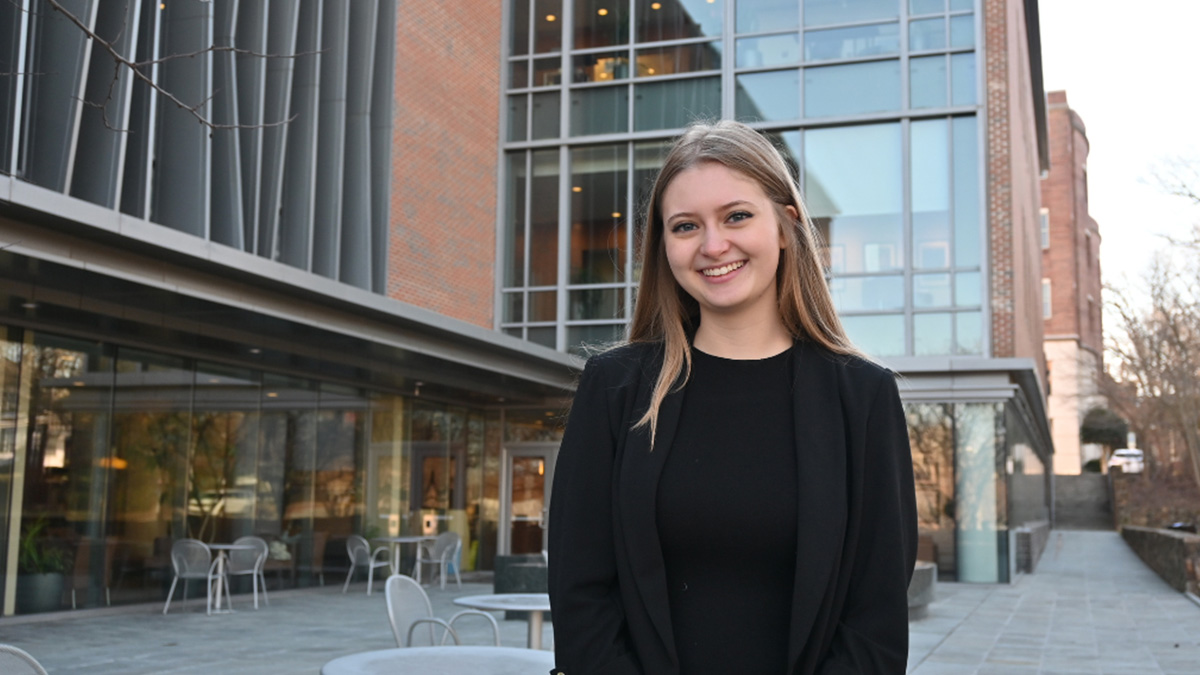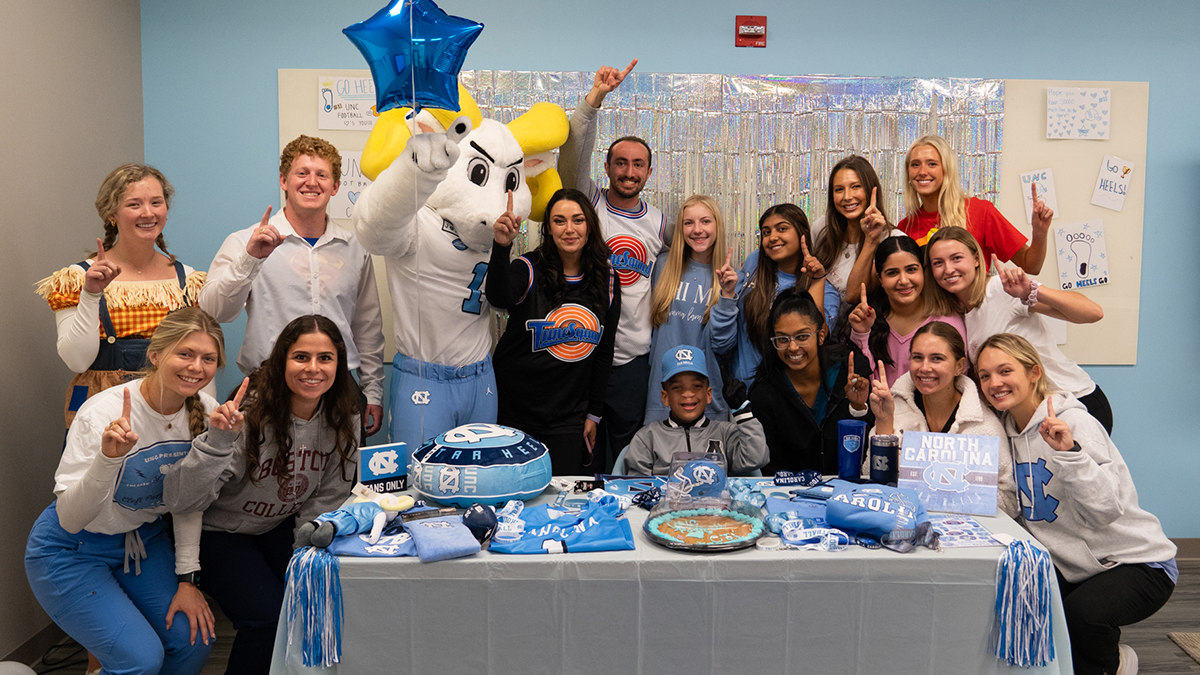Combating global warming with seaweed
Press the play button to see how a student startup plans to revolutionize seaweed farming in temperate waters to create jobs, reduce plastic pollution and clean carbon from the atmosphere.
Three Carolina students are taking on one of the biggest environmental issues facing the globe.
By cultivating seaweed to be used as a sustainable alternative to plastic, the Tar Heels hope to address the increasing effects of climate change head-on.
To put their idea into action, Eliza Harrison, Lucy Best and Emily Kian launched a startup called Phyta with the help of the University of North Carolina at Chapel Hill.
“Our team gauges seaweed as one of the most abundant and underutilized resources in the world,” said Harrison, a senior environmental health sciences major. “We’re growing seaweed and harnessing its social, environmental and nutritional potential.”
The team wants to use seaweed as a pollution-reducing resource and as alternatives for plastics and animal feedstock.
“Seaweed represents this incredibly promising resource that could be a very sustainable alternative for so many different components of the way that we operate within our consumer-based society,” Harrison said.
To get their business off the ground, the students turned to Carolina resources for mentorship and guidance.
“The Campus Y [CUBE] has been critical to helping us understand the entrepreneurial part of our enterprise,” said Harrison. “As non-traditional entrepreneurs with little to no business background, they have been a huge help.”
The team also consulted various faculty from UNC Gillings School of Global Public Health and UNC Kenan-Flagler Business School.
“These advisers haven’t known us for long,” said Best, a senior who is majoring in Chinese and political science. “But they believed in us and have supported us in so many ways during this process.”
Since its launch in 2016, Phyta has won Carolina’s Hult Prize competition and a regional final in Melbourne, Australia. The team then spent six weeks this summer with 41 other teams from around the world in the Hult Prize’s accelerator program, hosted in a castle outside of London. When the program ended in August, Phyta was selected as a global finalist to compete at the United Nations Headquarters in September.
As their business model was tested at the Hult Prize competition, their actual business faced a different kind of test at home — one created by Mother Nature.
While the team was in New York City for the global finals, Hurricane Florence was heading straight toward Phyta’s farm in Sea Level, North Carolina. Despite hurricane forces hammering their equipment, the seaweed farm withstood the storm with very little damage and kept the team on track.
“The fact that our farm was able to withstand Hurricane Florence and Hurricane Michael with no sustainable damage, or no damage at all, is something that is affirming to our farm’s ability to withstand larger storms because those are about to become much more frequent with climate change,” Best said.
With their farm fully intact, the team is preparing for their first harvest in the spring and launching into the next phase of Phyta’s mission.
“My favorite part about working with Phyta is the ability to have an impact that is so direct and so meaningful,” Best said. “I find it so important to be doing work with the environment.”




